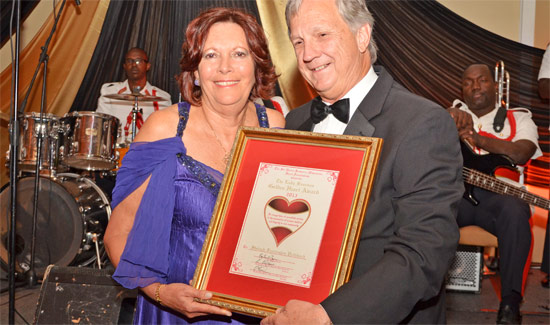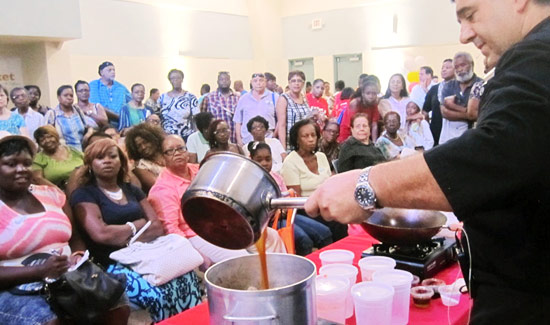NASSAU, The Bahamas — The Bahamas’ National HIV/AIDS Programme continues to be a global model based upon its longtime focus on oversight, training, planning, coordination and evaluation of the National response to HIV/AIDS, and an amiable partnership with the United States of America through its Caribbean Strategic Agreement, Minister of Health Dr. the Hon. Hubert A. Minnis said Tuesday.
Addressing the Opening Session of the Caribbean Regional HIV Prevention Summit on Most At-Risk Persons (MARPS) and Other Vulnerable Populations (OVPs) in New Providence, Dr. Minnis said an invitation by the U.S. President’s Emergency Plan for AIDS Relief (PEPFAR) officials to join the Caribbean Regional Strategic Agreement has led to the further strengthening of the national HIV/AIDS Response.
That Framework Agreement was signed between Dr. Minnis and United States Ambassador Nicole A. Avant almost one year ago on June 24, 2010. Ambassador Avant said the signing demonstrated the Obama Administration’s “long-term commitment to reducing the spread of HIV/AIDS and assisting those persons who have contracted the disease.”
“I am extremely proud of the commitment that the United States has made to respond to HIV/AIDS through the PEPFAR Programme – a commitment that represents the largest investment in history made by one nation to a single disease,” Ambassador Avant added.
Dr. Minnis and Ambassador Avant were the feature speakers at the Opening of the Summit which will be held over three days here in New Providence. The Summit is co-sponsored by the Ministry of Health and PEPFAR. PEPFAR is a United States of America initiative to combat the global HIV/AIDS epidemic. Under the PEPFAR Agreement, The Bahamas will receive more than $5million in U.S. assistance to fight HIV/AIDS over the next five years.
“As the Executing Agency for PEPFAR in The Bahamas, the Ministry of Health is moving to meet the agreed goals, while we continue to build on the work done in the past,” Dr. Minnis added.
Dr. Minnis applauded the National HIV/AIDS Programme and its long-time director Dr. Perry Gomez for their outstanding work in HIV/AIDS education, awareness and reduction.
“Since the very first case of HIV/AIDS was identified in The Bahamas, the death rate from HIV has been reduced by 70 per cent, going from 300 deaths from AIDS every year, to around 70 for the last two years,” Dr. Minnis added.
By Matt Maura
Bahamas Information Services



